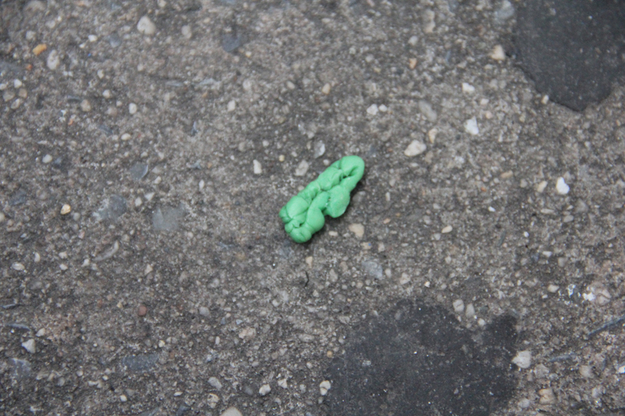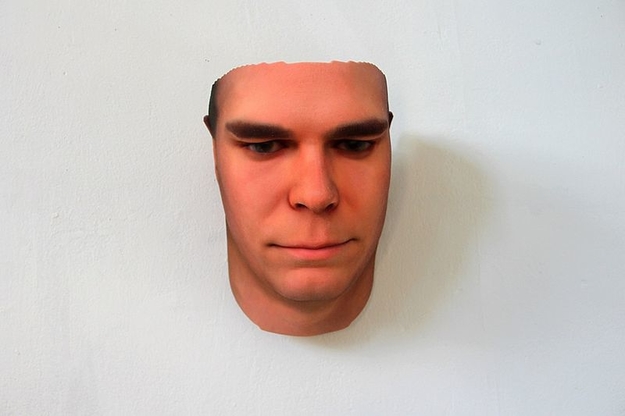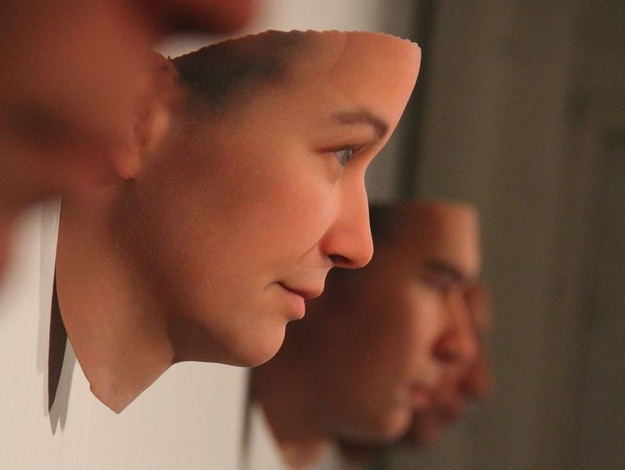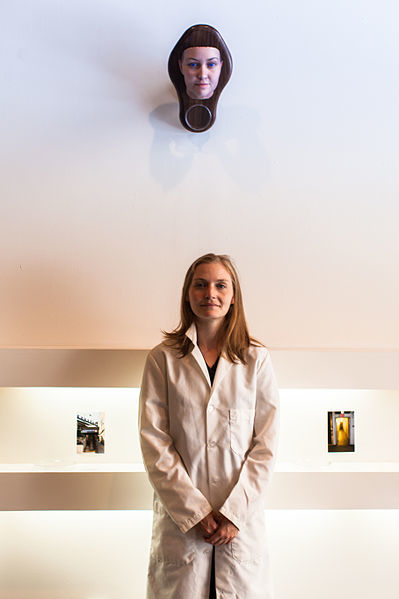During a therapy session, Heather was staring at a wall print, noticing a long dark hair that was caught in the crack of the framing glass. Intrigued by this particular hair, Heather starts imagining how the individual might be and looked like. When the session ended, she couldn't help seeing the human evidence around her. This is how Project Stranger Visions was conceived.
Consider the public space as a collection of unknown and unimportant forensic artefacts of human beings. A cigarette butt in the gutter, a discarded chewing on the sidewalk, a hair on a seat of the public transport or the saliva on the rim of a coffee cup,... Heather obsessively collects traces of the ongoing life. These fragments are often taken from the streets, public bathrooms and waiting rooms of New York City.
Before she can generate a 3D and full-colour portrait, the DNA should be extracted from the human traces first. The captured genetic data can be analyzed and amplified based on genetic research. After collecting the necessary data she looks at an available* descriptive profile or creates one by herself. A descriptive profile is a code list of human traits expressed in letters and numbers. These profiles will determine or specify certain traits of an individual's DNA, such as eye colour, gender, face shape, etc. *Many descriptive profiles can be found online open sources.
Then she inserts the descriptive profile through a modified face-recognition system. Which will read the codes and generate some morphable models of a human face. Then it is just a matter of choosing the most interesting model to 3D print in a life-sized and full-colour portrait.
Before Heather started with her project she had no experience or knowledge of microbiology or genomics but becoming a member of Genspace she was able to learn how to extract and analyze DNA. Genspace is a community lab where anyone can sign up for a class to learn about the basics of microbiology. You can also apply to the lab with a specific project. If it seems adequate you get the mentorship of scientists to help you through your experiment.
If you ever want to analyze DNA by yourself or interested in the subject. Heather collected all descriptive profiles together in a spreadsheet. This master list is an open-source as well and accessible by anyone.
Visit Heather Dewey-Hagborg’s website to discover more scientific art projects. Fascinated by this artistic approach? Want to see another artist who creates fairly representable but abstract portraits from DNA. Or stick to the chewing gum visual archive.
Sources:



